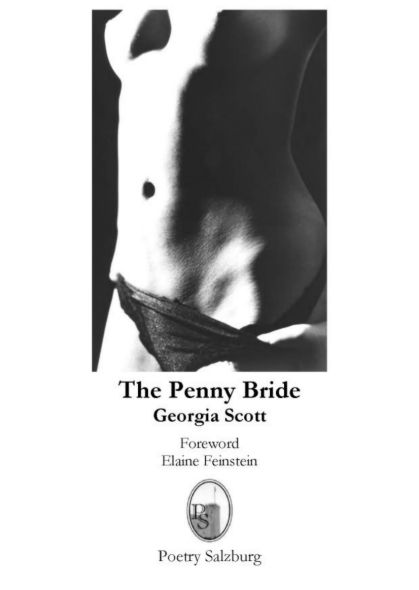| » Cover | ||
|
Reviews
Georgia Scott's second book with Poetry Salzburg is immediately arresting. The crisp, unadorned black and white cover includes a partially shadowed photograph of a lean woman's torso, naked except for black bikini underwear she appears to be removing slowly. The image summons forth poems of eroticism, adultery, submission, and sensual pleasure. But to label Scott as mere love poet undermines her versatile poetic oeuvre. While The Penny Bride's poems are usually topical and often sexual, "The Olives in the Vats" diverges from both; here Scott meditates on her craft and "poems that go unwritten":
They come up from the streets and gutters But turn back the poet rarely does. Her first-person speakers celebrate sensuality, often in apostrophe to an absent lover—"Your love is food enough for me. / I don't need to dine on more." Scott is clever and mischievous, as when she imagines herself as a pinball machine played masterfully by a lover, and when she equates lovemaking with the writing process in "On the Desk." And when she juxtaposes the mystical and sexual in "Nazarenes," she poses the carnal as a spiritual wonder born of night. Despite Scott's indulgent submissions to love, The Penny Bride—as the title suggests—is not without sadness. When her neighbor draws her "mother's laughter like / water from deep in a well," she brings reader and dead mother close. Her gift is the ability to write emotionally and artistically accessible poems as she moves through sex, masturbation, middle age, pregnancy, anorexia, deceased parents, and memory loss, amongst other topics. Any potential disappointment in The Penny Bride would likely stem from its length. Sixty-eight poems is a handful too many, especially when the simplistic rhyming couplets of "Ink" and "The Girl of His Dreams" and the kitsch of poems like "The Magic Poetry Book" detract from what is a delightful book.
|
|||||
